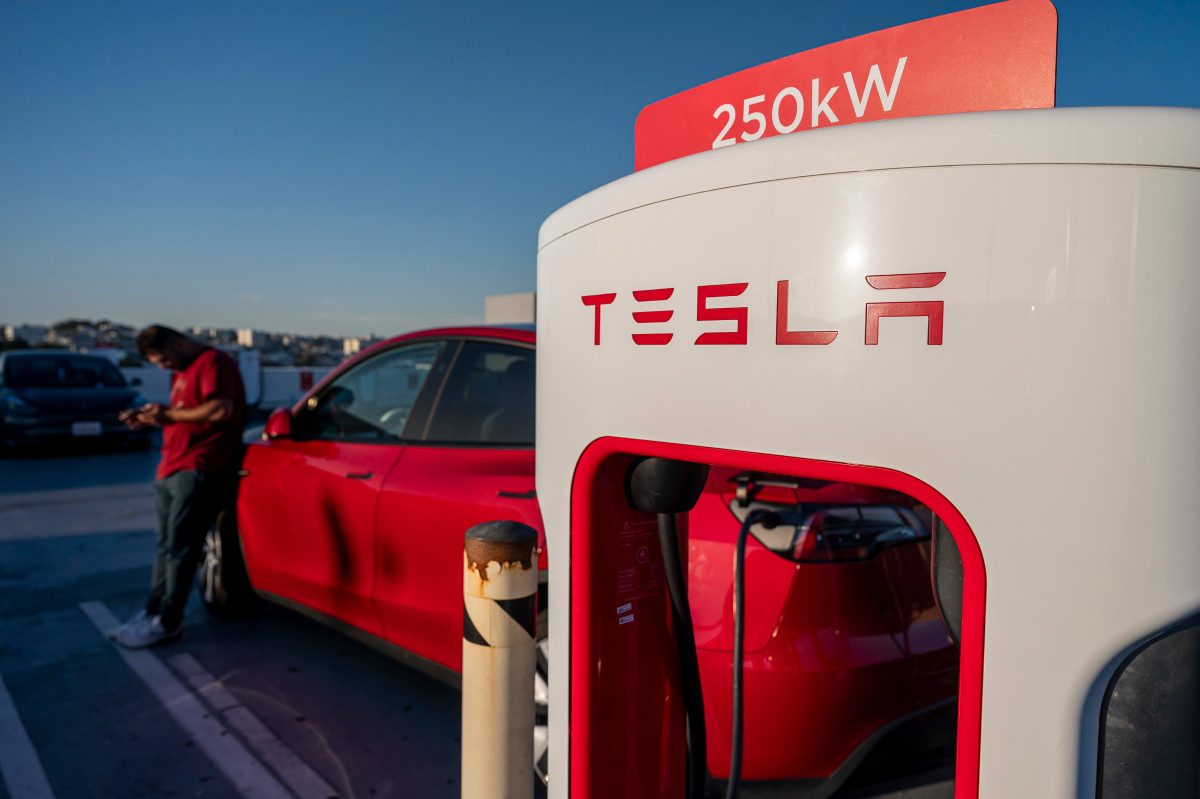
Running out of charge is a terrible scenario for both gas and electric car drivers, especially in regions with extremes of all four seasons.
Related: "Expensive" EVs offer a savings edge over cheaper gas cars: Study
Let's face it: the inside of our heated and air-conditioned vehicles is a better place to be when it is too hot or cold outside and essential when it is raining or snowing. Sometimes, running out feels like a better solution than facing Mother Nature's perils when the low battery indicator turns on.
According to new findings from the scientists at the Oak Ridge National Laboratory, a new kind of EV charging can deliver charging speeds that match Tesla's (TSLA) Supercharging without touching a single charging cable.
Look, mom, no wires!
In a new demonstration, researchers from the U.S. Department of Energy's Oak Ridge National Laboratory in Tennessee conducted the fastest wireless power transfer yet. Using a polyphase wireless charging system, the boffins transferred electricity wirelessly at 270 kW (kilowatts) to a Porsche Taycan.
For comparison, Tesla says its Superchargers can deliver up to 250kW, while Electrify America's "Ultra-Fast" EV chargers deliver up to 150kW. The new breakthrough comes months after the researchers achieved a wireless charging session at 100kW.
The wireless charging apparatus uses a similar technology to that used to charge your Samsung Galaxy or iPhone wirelessly: lightweight polyphase electromagnetic coupling coils mounted to the bottom of the Porsche.
According to the researchers, the coils mounted on the car differ from those used to charge your phone, as the former has a unique design meant to handle this kind of electrical load. At 19 inches wide, the coil itself may be physically larger than multiple iPhone screens but is compact enough to fit underneath the Porsche.
"The receiver coil designed for the Porsche Taycan research vehicle can achieve 8 to 10 times higher power density compared to existing systems," said Omer Onar, leader of the Vehicle Power Electronics group and lead researcher on the Porsche demonstration at ORNL.
“Per kilowatt weight, this is also the most lightweight charging system in the world.”
More Business of EVs:
- Porsche and Mercedes diverge at EV crossroads
- A Fisker-type problem is affecting an automaker known for quality
- Police officer pulls over Waymo robotaxi, is greeted by no driver or passengers
This experiment aims to extract higher power densities from smaller, more compact systems, which can improve overall charging efficiency and performance.
The researchers are also working with Porsche's parent company, Volkswagen, to improve the wireless charging system further to make it more cost-effective and deployable for use in production vehicles.
“This achievement gets us one step further to the reality of a future where an electric vehicle can pull into a charging station and recharge in the same time it would take to walk into a store and grab a snack,” said ORNL vehicle and mobility systems research lead Burak Ozpineci. “The driver doesn’t have to do anything but park."
Related: Nissan is bidding farewell to fan-favorite model after 23 years
A few caveats
Though the researchers are actively finding ways to package their prototype into something tangible, the realities of the EV charging infrastructure make such a product challenging to work in the real world.
Most residential houses and dwellings lack the electrical infrastructure to achieve EV charging speeds of 270 kW. Tesla's $580 "Universal Wall Connector" home charger requires a Tesla "Certified Installer" to install and delivers just 11.5 kW.
Additionally, many of the DC fast chargers, such as those provided by Electrify America and Tesla Superchargers in the expansive parking lots of big-box stores and shopping malls, require extremely specialized electrical equipment that takes up a lot of space.
In more realistic terms, wireless charging capabilities like the solution demonstrated will have to be very common, much like how automakers like Ford, General Motors, and Rivian are incorporating Tesla's NACS (North American Charging System) plugs into their EVs.
Related: Veteran fund manager picks favorite stocks for 2024







